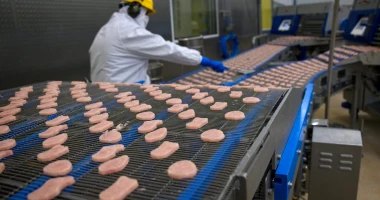World Bank’s climate plan: Pricier red meat and dairy, cheaper chicken and veggies ( www.politico.eu )
“We have to stop destroying the planet as we feed ourselves,” a World Bank official said, as red meat and dairy drive CO2 emissions.
Cows and milk are out, chicken and broccoli are in — if the World Bank has its way, that is.
In a new paper, the international financial lender suggests repurposing the billions rich countries spend to boost CO2-rich products like red meat and dairy for more climate-friendly options like poultry, fruits and vegetables. It's one of the most cost-effective ways to save the planet from climate change, the bank argues.
The politically touchy recommendation — sure to make certain conservatives and European countries apoplectic — is one of several suggestions the World Bank offers to cut climate-harming pollution from the agricultural and food sectors, which are responsible for nearly a third of global greenhouse gas emissions.
…
The paper comes at a diplomatically strategic moment, as countries signed on to the Paris Agreement — the global pact calling to limit global warming to 1.5 degrees Celsius — prepare to update their climate plans by late 2025.
